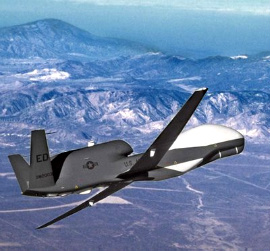 As you may recall, I think one of the most important questions you should ask yourself when you ponder public policy is, “Compared to what?” Michael O’Hare asks this question regarding drone attacks:
As you may recall, I think one of the most important questions you should ask yourself when you ponder public policy is, “Compared to what?” Michael O’Hare asks this question regarding drone attacks:
I think our emotional reaction to stuff like this depends a lot on what alternatives we instinctively compare it to. Is the drone a cowardly analog to lying in wait for a bad guy and bushwacking him, a pusillanimous substitute for standing up and ‘fighting like a man’, putting your safety at immediate risk? Or is it just like launching a bullet from far away, or dropping a bomb from high in the air, or planting a mine that goes off when you’re in another county, except better because it’s more accurate and selective, can be called off right up to the last second, and even safer for the pilot/operator?
Here’s a related point, prompted by the news that even a majority of liberals approve of drone attacks. Again, the key question is, “Compared to what?”
- When you think of drone attacks, are you mentally comparing them to the invasions of Afghanistan and Iraq? If so, they’ll seem like superior alternatives: more focused, less deadly, less costly, and less likely to spiral out of control.
- Or, are you mentally comparing them to no war at all? If so, they’ll obviously seem more deadly, more costly, and, as Mike points out, maybe even cowardly and pusillanimous too.
If liberals are implicitly choosing the first option, that might explain why so many approve of drone attacks: because they want us to withdraw troops from Afghanistan, and they think of drone attacks as a way of allowing that to happen. They may or may not approve of the attacks in a vacuum, but if that’s what it takes to provide cover for a drawdown, then it’s an acceptable compromise.
I’m not sure how you get inside people’s heads to see if this is the lens they’re using. But I suspect that something like this explains what’s going on, just as “Compared to what?” explains a lot of other things that otherwise seem a little mysterious at first glance.

















